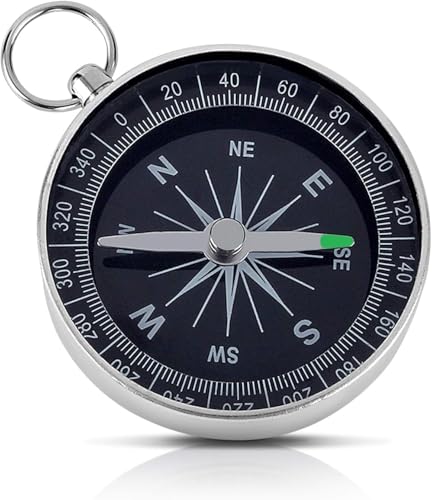Using a compass: Common Mistake #1 – Not Understanding Magnetic Declination
One of the biggest mistakes people make when using a compass is not understanding magnetic declination. Magnetic declination is the angle between true north and magnetic north at a specific location. This angle can vary depending on where in the world you are. If you don’t account for magnetic declination, your compass readings will be off, and you could end up heading in the wrong direction. To avoid this mistake, always check the magnetic declination for your location and adjust your compass accordingly.
Using a compass: Common Mistake #2 – Holding it Incorrectly
Another common mistake is holding the compass incorrectly. Many people hold the compass too close to their body, which can cause interference with the magnetic needle. When using a compass, hold it away from your body at arm’s length, and make sure it’s flat and level. This will ensure the magnetic needle can move freely and give you accurate readings.
Using a compass: Common Mistake #3 – Not Accounting for Local Attraction
Local attraction is another area where people commonly make mistakes. Local attraction is any interference that can affect the accuracy of your compass readings. This can come from metal objects or other magnetic fields in the immediate area. To avoid this mistake, move away from any metal objects or sources of interference when you take your compass readings.
Using a compass: Common Mistake #4 – Not Using a Map
Using a compass without a map is another mistake that people often make. A compass is only useful if you know where you are and where you need to go. Bringing a map with you can help you navigate more accurately and avoid getting lost. When using a compass, always use it in conjunction with a map so you can get a clear sense of direction and location.
Using a compass: Common Mistake #5 – Not Practicing Enough
The last mistake people make when using a compass is not practicing enough. Compass navigation takes practice, and if you don’t use it regularly, you’re more likely to make mistakes. Make sure you know how to use your compass before you head out on a trip, and practice using it in different environments and conditions. The more you practice, the more confident you’ll be using a compass and the fewer mistakes you’ll make.






